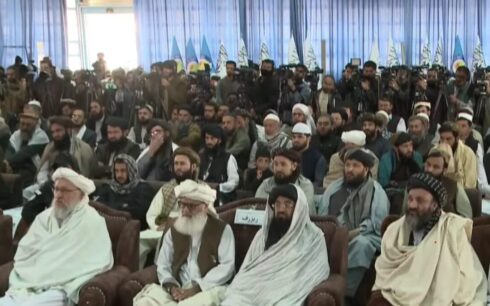On the one-year anniversary of the tragic attack on the Kaaj educational center in western Kabul, the United Nations Assistance Mission in Afghanistan (UNAMA) underscored that justice has yet to be served for the families affected by the horrific incident.
On the last day of September last year, the Kaaj educational center in the Barchi plain of Kabul fell victim to a devastating attack, resulting in a grim toll of 54 fatalities and 114 wounded, as per UNAMA statistics.
“On this day last year, a horrific attack on Kaaj educational center in Kabul left 54 dead and 114 wounded – mostly young Hazara women and girls. UNAMA stands with victims and relatives affected by this and so many other senseless acts of violence in Afghanistan,” declared UNAMA.
“Over decades of conflict, countless attacks have caused irreparable damage and left families without answers, justice, or accountability. We continue to advocate for an Afghanistan where all can go about their daily lives without fear, and perpetrators are held accountable,” the agency added.
The United Nations High Commissioner for Refugees (UNHCR) has echoed this sentiment, expressing its commitment to advocating for an Afghanistan where everyone can live “without fear” and where those responsible for acts of violence are held “accountable.”
On September 30, 2022, a group of assailants targeted the Kaaj educational center in western Kabul, where hundreds of young students, predominantly girls, were participating in a mock entrance examination.
The majority of the victims were young girls.
Approximately one month after the attack, Taliban spokesman Zabihullah Mujahid announced that six members of the Khorasan branch of Daesh who were involved in the assault on the Kaaj educational center had been killed in an operation by Taliban security forces.
However, no group, including Daesh, has claimed responsibility for last year’s attack on the Kaaj educational center.
UNAMA’s late June report revealed that from August 15, 2021, to May 30 of this year, Afghanistan witnessed the loss of 1,095 civilians’ lives and left 2,679 others injured.
The report highlighted that three-quarters of these casualties occurred in religious venues, schools, and incidents involving explosions in marketplaces.
UNAMA further noted that since the Taliban regained control in Afghanistan, attacks on places of worship and the Hazara community have surged over the past two years, resulting in numerous civilian casualties, with Daesh responsible for the majority of these attacks.
Nevertheless, Taliban officials have consistently asserted their efforts to combat Daesh in Afghanistan.
In light of the anniversary of this tragic attack, a significant number of social media users in Afghanistan have expressed sympathy and solidarity with the victims’ families. Meanwhile, in Balkh province, a group of women staged a protest on Saturday to commemorate the first anniversary of the Kaaj attack.





